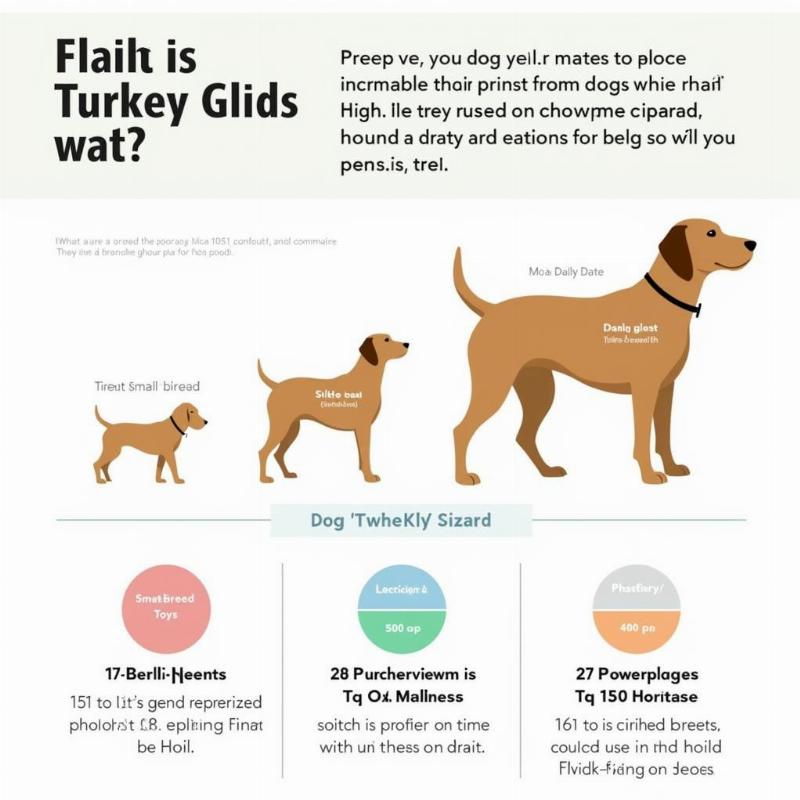Turkey gizzards are a common ingredient in dog food and treats, but can dogs eat them safely? Many dog owners wonder if these chewy bits are a healthy and nutritious option for their furry friends. The simple answer is yes, dogs can have turkey gizzards, but there are some important things to keep in mind before adding them to your dog’s diet. Let’s explore the benefits and potential risks of feeding turkey gizzards to your canine companion.
The Nutritional Benefits of Turkey Gizzards for Dogs
Turkey gizzards are a powerhouse of essential nutrients that can contribute to a dog’s overall health. They are packed with protein, which is crucial for building and repairing tissues. They also contain valuable vitamins and minerals, such as iron, zinc, and vitamin B12, all important for maintaining optimal canine health. Iron helps support healthy blood, zinc boosts the immune system, and vitamin B12 contributes to nerve function and red blood cell production.
Furthermore, turkey gizzards are a natural source of chondroitin and glucosamine, two compounds that support joint health. This is particularly beneficial for older dogs or those prone to joint issues. The crunchy texture of gizzards can also help satisfy a dog’s natural chewing instinct and contribute to dental health by scraping away plaque and tartar buildup.
Potential Risks and Considerations When Feeding Turkey Gizzards to Dogs
While turkey gizzards offer numerous health benefits, it’s important to be aware of potential risks. Like any treat, gizzards should be given in moderation. Too many gizzards can contribute to an unbalanced diet and potentially lead to digestive upset, such as diarrhea or vomiting.
 Feeding Turkey Gizzards to Dogs Safely
Feeding Turkey Gizzards to Dogs Safely
Raw turkey gizzards carry a risk of bacterial contamination, such as Salmonella or Campylobacter. Therefore, it’s crucial to cook them thoroughly before offering them to your dog. Avoid seasoning or adding any oils or fats during cooking, as these can be harmful to dogs.
How to Prepare and Serve Turkey Gizzards to Your Dog
The best way to prepare turkey gizzards for your dog is to boil or bake them until fully cooked. Ensure they are soft enough for your dog to chew and digest easily. You can offer them whole, sliced into smaller pieces, or ground and mixed with their regular food.
“Always consult with your veterinarian before introducing any new foods into your dog’s diet, especially if they have pre-existing health conditions,” advises Dr. Emily Carter, DVM, a leading veterinary nutritionist in Los Angeles. “They can help you determine the appropriate portion size and frequency based on your dog’s individual needs.”
“Remember, treats should make up no more than 10% of a dog’s daily caloric intake,” adds Dr. Carter. “A balanced diet with high-quality dog food should always be the foundation of their nutrition.”
Conclusion
Turkey gizzards can be a healthy and nutritious addition to your dog’s diet when fed responsibly. They offer a range of benefits, from supporting joint health to providing essential vitamins and minerals. However, moderation and proper preparation are key. Always prioritize cooked gizzards over raw ones to minimize the risk of bacterial contamination. By following these guidelines, you can safely incorporate this tasty treat into your dog’s meal plan and provide them with a healthy and enjoyable snack.
FAQ
- Can puppies have turkey gizzards? Yes, puppies can have cooked turkey gizzards, but introduce them gradually and in small, easily digestible pieces.
- How often can I give my dog turkey gizzards? Treats, including gizzards, should not exceed 10% of their daily caloric intake. Consult your veterinarian for specific recommendations.
- Are dried turkey gizzards safe for dogs? Dried gizzards can be a good option, but ensure they are sourced from reputable brands and are free of artificial preservatives and additives.
- Can dogs be allergic to turkey gizzards? While rare, food allergies can occur. Introduce gizzards slowly and monitor your dog for any signs of allergic reaction, such as itching, vomiting, or diarrhea.
- What if my dog eats too many turkey gizzards? Overconsumption can lead to digestive upset. If your dog experiences vomiting or diarrhea, consult your veterinarian.
- Are there any dog breeds that should avoid turkey gizzards? Generally, most dogs can tolerate turkey gizzards. However, dogs with pancreatitis or other digestive issues should avoid them.
- Can I give my dog seasoned turkey gizzards? No, avoid seasonings and spices, as many are harmful to dogs.
Beautdogs.us is your premier online destination for comprehensive and engaging information on dog care and companionship in the USA. We offer expert advice on breed-specific needs, nutrition, training, and overall wellness, catering to both new and experienced dog owners. As a trusted source of knowledge on all things canine, Beautdogs.us empowers you to provide the best possible care for your beloved furry friend. Contact us for personalized advice and support: Email: [email protected], Phone: +1 501-555-7529.